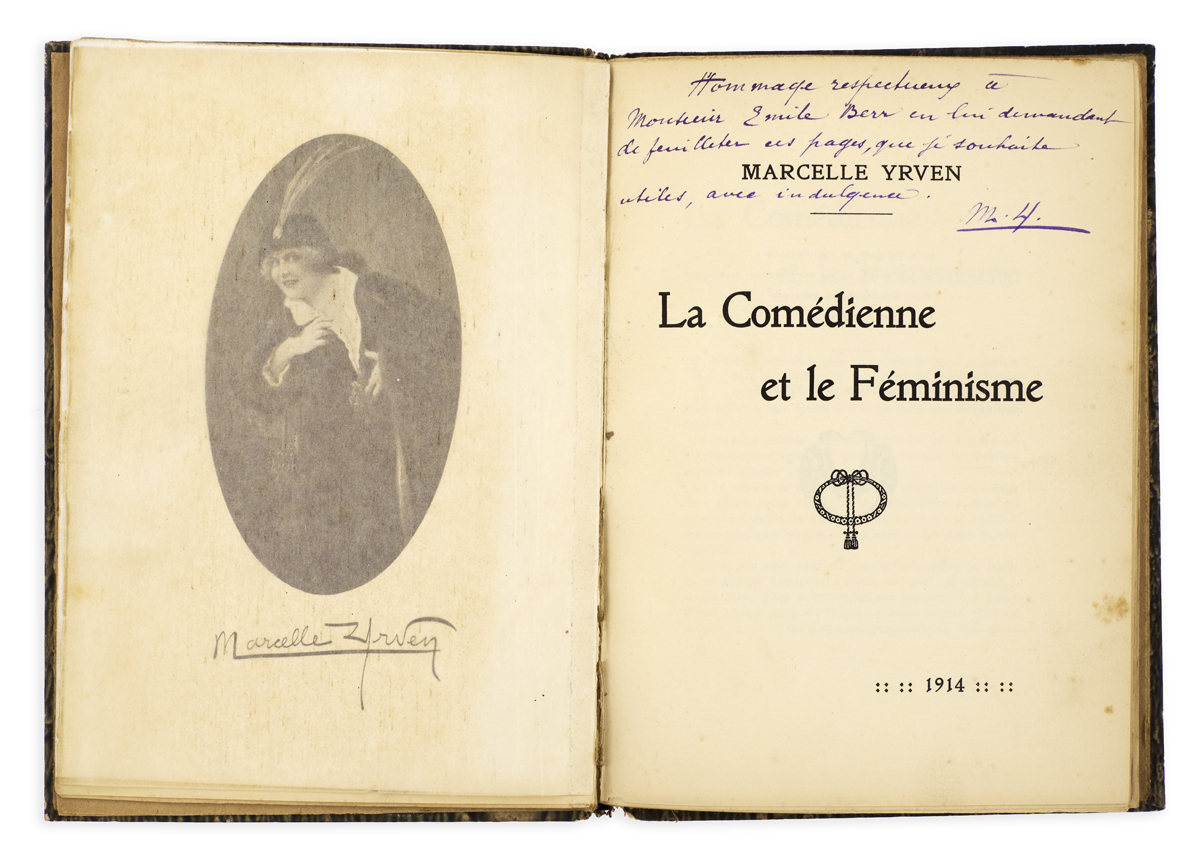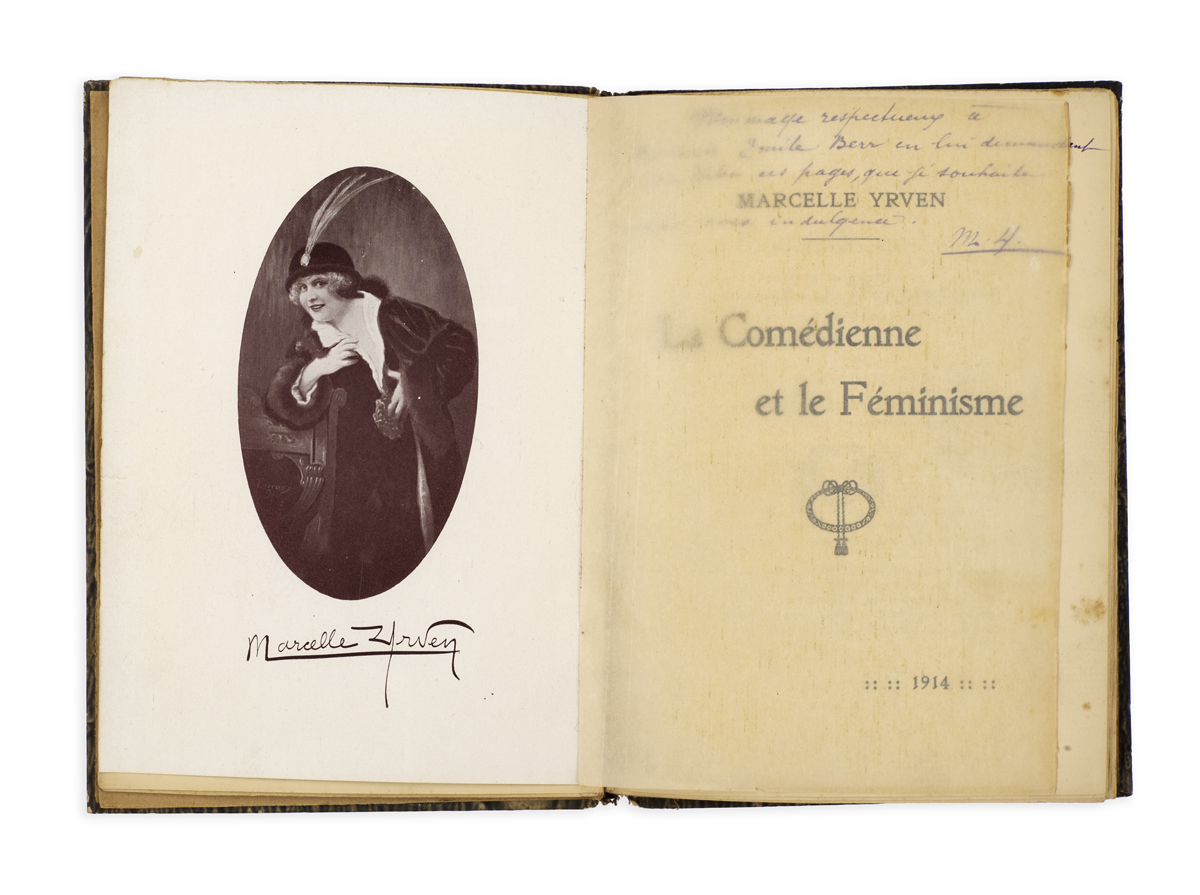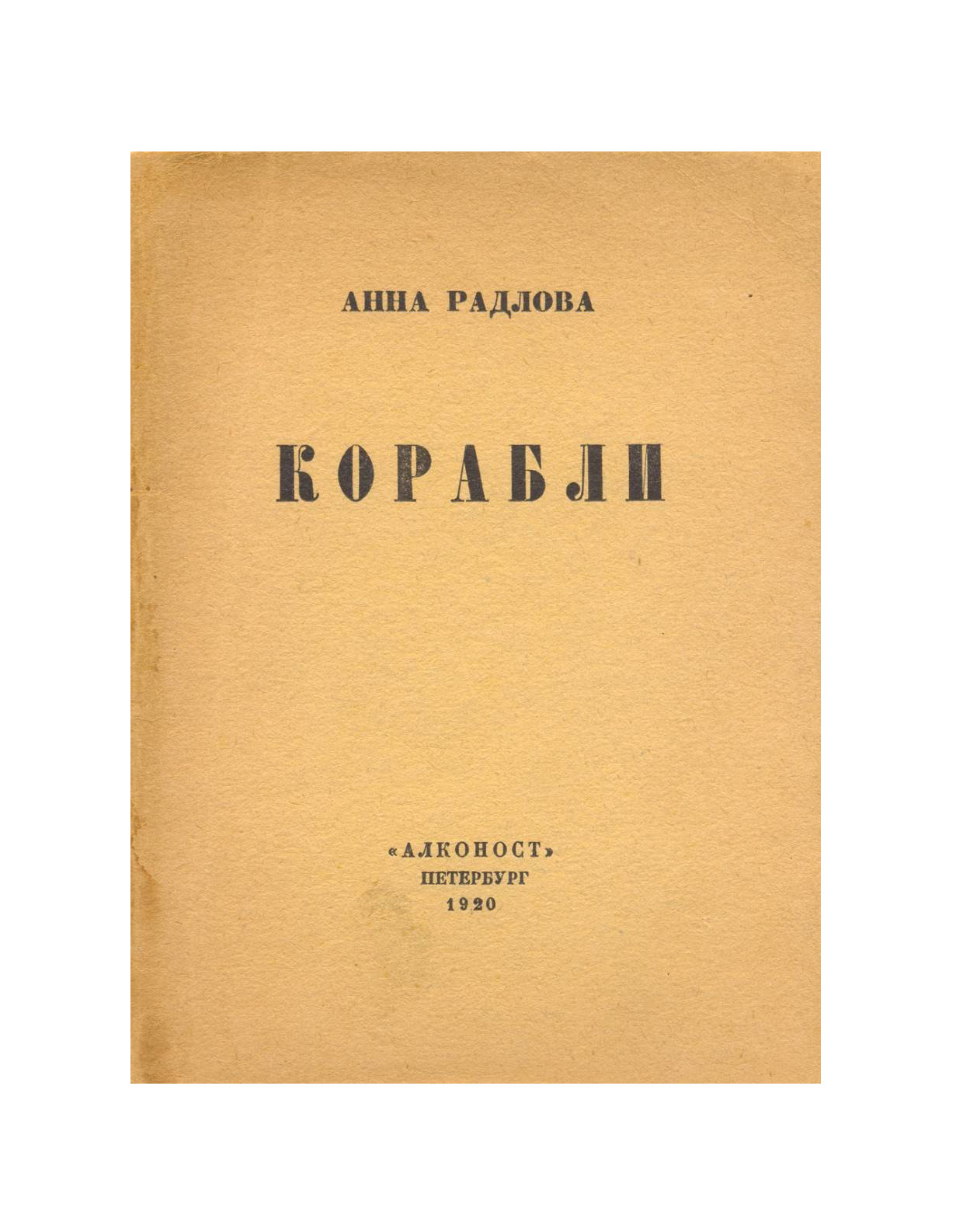

A STAGE OF ONE’S OWN
YRVEN, Marcelle.
La comédienne et le féminisme.
Paris, L. Pichon, 1914.
4to, pp. 2, [2 (blank)], 38, [2 (colophon, blank)], with half-tone photographic frontispiece; with half-title, printed in red and black; very occasional light spotting; in contemporary paste-paper boards, gilt lettering-piece to spine; corners and extremities a little worn, but a very good copy; the author’s presentation inscription to title-page ‘Hommage respecteux a Monsieur Emile Berr en lui demandant de feuilleter ces pages, que je souhaites utiles, avec indulgence. M.Y’.
First edition of this feminist work on the necessity of a thorough literary and cultural education for women in theatre, by the celebrated actress Marcelle Yrven, presented to the editor-in-chief of Le Figaro’s literary supplement.
Stage and film actress Marcelle Yrven (1877–1954) here argues that an actress’s beauty and education are not mutually exclusive. For Yrven, feminism is ‘when women want to rise up, not to be inferior to men but to equal or even surpass them, drawing upon their intelligence, their education, their individual qualities, their activity, and their curiosity’ (p. 9 trans.). Citing Colette as a prime example of a femme de lettres who achieved great success on the stage, she urges young women to swap cloak-and-dagger tales and feuilletons for Moliere, Racine, Corneille, and Hugo. Once the work of these ‘cardinal authors’ has been mastered, the aspiring actress should read widely, turning to anthologies for a variety of poetry and prose and subsequently turning to masterpieces of French drama.
Provenance: presented by the author to the journalist Émile Berr (1855–1923), journalist at Le Figaro, editor-in-chief of its literary supplement from 1895, and recipient of the Légion d'honneur in 1923.
We have found three other inscribed copies of La comédienne et le féminisme, presented to Gaston Doumerge, former President of France (Médiathèque municipale Gaston Doumergue), to the writer and literary critic René Boylesve (BnF), and to the dramatist Georges Courteline (University of Toronto).

